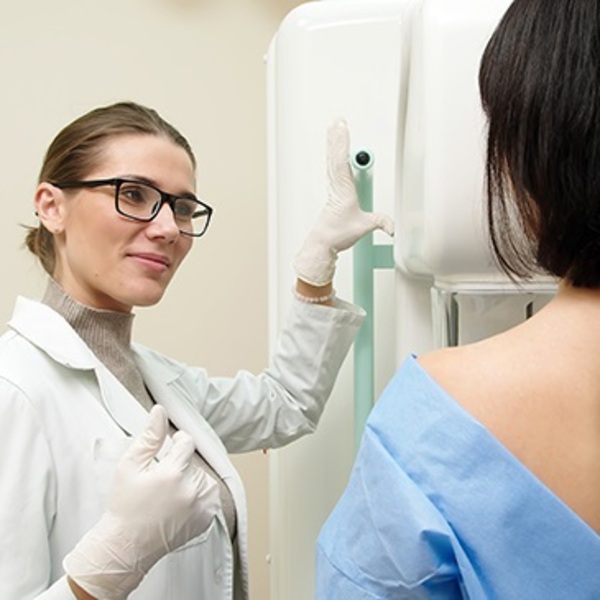Raising Awareness, Expanding Hope

While October signifies Breast Cancer Awareness Month and plenty of opportunities to get involved, to show support and to honor the women who have been afflicted by breast cancer, it is ultimately a fight that continues year-round.
Women will often receive breast exams from their medical practitioner without mammography during a regular gynecological exam, but it is imperative that they know how to regularly check themselves for any irregularities regardless of age and medical history. This self-check consists of firmly pressing in a circular motion to feel for any abnormality, as well as examining visually for any changes.
Starting at age 40, it is recommended by the American Cancer Society to start mammogram screenings every year—and women 55 and older may switch to mammograms every other year. Women should also be aware of factors that may increase their risk of breast cancer, such as a family history, radiation and hormone therapies and genetic mutations.
According to the National Breast Cancer Foundation, one in eight U.S. women will develop breast cancer in their lifetime, making it the second most common cancer among American women after skin cancer—but not all can afford the necessary labs, appointments and treatment to take those necessary preventative measures. That inaccessibility of affordable, proactive health care measures can exacerbate an already difficult circumstance.
South Jersey Magazine spoke to local medical professionals to gain insight about the current scope and potential future of breast cancer health care.
While there are some women who believe they are feeling fine and don’t have any noticeable issues, how important is it to get a routine breast cancer exam, especially because early detection is so vital?
“Early breast cancer typically has no noticeable symptoms. If you brush off a routine mammogram because you’re feeling fine, you may potentially miss an opportunity to be completely cured of the disease with less invasive options. I strongly encourage all women to discuss breast health and screenings with their OB/GYN or primary care provider.” —Nandini Kulkarni, MD, medical director of surgical oncology, Inspira Health
What has changed about breast cancer diagnoses and treatment with the evolution of technology and research?
“The word ‘cancer’ still has some old stigma associated with it and because of these new treatments, patients are often well informed when they come in. There are a lot of exciting treatments that have more precise targets and far less morbidity, side effects and toxicity, with more meaningful survival. Patients are experiencing longer survival, higher cure rates and fewer side effects in many cases.” —Dr. Noah Lindenberg, MD, founder and oncologist, Lindenberg Cancer & Hematology Center
Resources
Inspira Health
Article continues below
advertisement

(800) INSPIRA
InspiraHealthNetwork.org
advertisement

(800) INSPIRA
InspiraHealthNetwork.org
Click here to subscribe to the free digital editions of South Jersey Magazine
To read the digital edition of South Jersey Magazine, click here.
Published and copyrighted in South Jersey Magazine, Volume 21, Issue 7 (October 2024)
Published and copyrighted in South Jersey Magazine, Volume 21, Issue 7 (October 2024)
For more info on South Jersey Magazine, click here.
To subscribe to South Jersey Magazine, click here.
To advertise in South Jersey Magazine, click here.
To subscribe to South Jersey Magazine, click here.
To advertise in South Jersey Magazine, click here.
Author: Carly Murray
Archives
Enhanced Levels of Care
2025 Top Physicians for Women
The Substance of Weight-Loss Medicine
Top Dentists 2025
Top Physicians for Children 2025
Innovations in Health Care 2024
The Full Scope
Top Physicians 2024
Who’s Who in Health Care 2024
Top Dentists 2024
Breaking the Silence
Best of Health Care 2024
2024 Top Physicians for Children
Top Physicians 2023
Innovations in Health Care
More Articles







